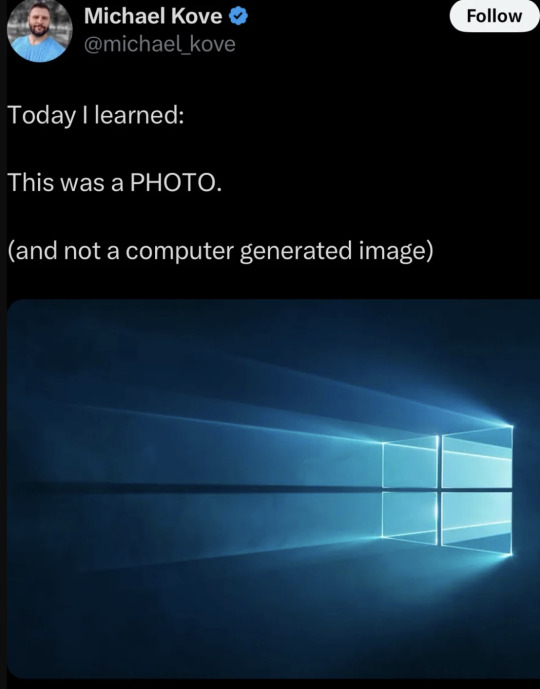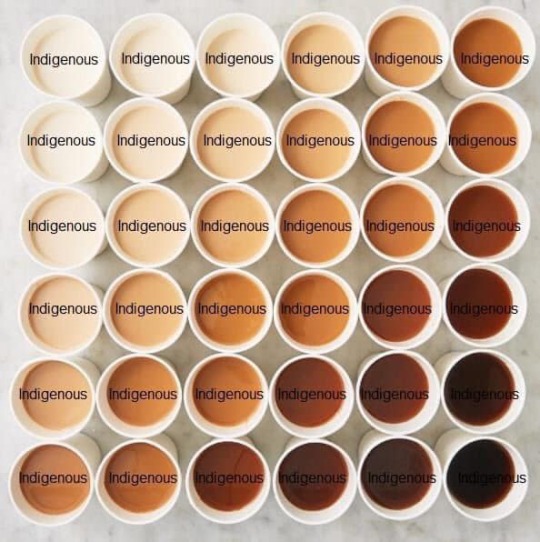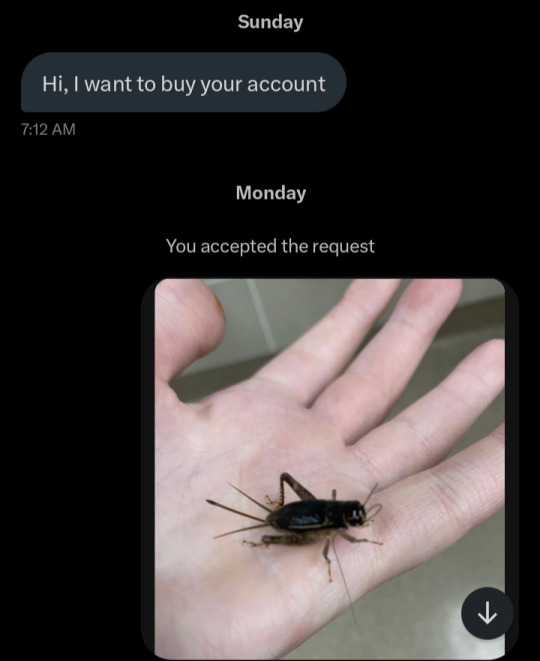Huge robotics nerd who works in and studies technology! Futurist, Innovator and inventor
Don't wanna be here? Send us removal request.
Text
"In a new study, University of British Columbia researchers set out to answer the following question: Would you rather have 10 cents in your pocket or a 1-in-10,000 shot at $1,000?
Their findings indicate that they may have figured out a way to get people to recycle more.
The researchers, whose work was just published in the journal “Waste Management,” tested the idea of offering people who return used bottles a small chance to win a big cash prize, instead of the standard 5- or 10-cent deposit earnings.
The result? Participants recycled 47% more bottles for the chance at a $1,000 prize.
“This small change in how we reward recycling made a big difference. People were more excited, more engaged, and they brought in more bottles,” Dr. Jiaying Zhao, associate professor in the department of psychology and senior author of the study, said in a statement for the university.
“It turns out that the thrill of possibly winning a big prize is more motivating than a small guaranteed reward. It’s the same reason people buy lottery tickets; That tiny chance of a big win is exciting.”
The researchers ran three experiments in British Columbia and Alberta, where bottle deposit systems already exist. Despite the fact that these deposit stations give people a small refund when they return their recyclables, many bottles still end up in the trash.
In the first two experiments, people could choose between a guaranteed 10-cent refund or a chance to win a larger amount, ranging from $1 to $1,000. Even though the odds of winning were low, many people chose the lottery-style offer.
In the third experiment, participants were randomly assigned to either the guaranteed refund or the lottery-style refund. Those given the lottery-style option brought in almost three bottles for every two returned by the control group.
The researchers found that people even felt happier when they had a shot at the big prize, even if they didn’t actually win — a feeling called “anticipatory happiness” — that made the act of recycling more enjoyable.
All of this is modeled after an existing scheme in Norway.
“Norway is the only country in the world that has a similar recycling lottery, and their bottle return rate is close to 100%,” Dr. Zhao said. “The probabilistic refund could be their secret sauce. We hope Canada can adopt this innovative idea as well.”
In Norway, the bottle recycling lottery was implemented over a decade ago, and now, approximately 97% of all plastic beverage containers are returned across the country.
Here, the model is choice-driven, giving people the option to choose between the guaranteed refund or the chance to win anywhere from 5 to 100,000 euros.
“The system also doesn’t encourage gambling,” Fast Company reported, “because there’s no way to enter with cash, and there are no ‘near misses’ like with other kinds of gambling.”
Norway has also implemented a program where some of the lottery’s proceeds go to the Norwegian Red Cross.
“Instead of 10 cents back to you, what if the proceeds go to a food bank or charity?” Dr. Zhao asked Fast Company. This is also part of her team’s research, with results soon to be published.
It’s important to note that the lottery-style refund wouldn’t cost more than the traditional system, with both options sharing the same average payout. Cities could adopt this approach without spending an extra dime.
Additionally, Dr. Zhao mentioned that it’s important for cities to consider the choice-based model, giving people the option to get the regular 5- or 10-cent returns, alongside the new lottery initiative, to help canners and binners who rely on this kind of income.
“We don’t want to take the short gain option away,” she told Fast Company. “Instead, we want to give people the option to choose.”
Aside from the valuable psychological insights of the study, Dr. Zhao and her colleagues are optimistic about a future in which more people are engaged in recycling.
“Creating new bottles comes with a lot of carbon emissions, and not recycling bottles also comes with a lot of pollution,” Jade Radke, a lead author on the study, said. “So it can be a meaningful way to decrease all of those things.”
According to the UBC press release, if this approach is widely adopted, it could help recycle millions more bottles and reduce greenhouse gas emissions equal to taking one million cars off the road each year."
-via GoodGoodGood, June 25, 2025
3K notes
·
View notes
Text
I get to be more free as an adult than I ever did as a child and I think more kids need to know that. as a high schooler part of what made my depression so bad was being told over and over again that it was the most carefree time of my life. while I was trapped in an abusive home + amongst bullies at school + in a body that wasn’t right for me. opportunities to be carefree don’t end when you turn 18. you can be more you than ever as an adult and that’s such a gift. I know ‘it can get better’ is an annoying thing to see over and over when you’re as trapped as I was back then. and I know that if you’re still a kid you deserve to be free right this second. but it can and will get better and this is not where life stops being interesting. promise
28K notes
·
View notes
Text
“The group that wrote essays using ChatGPT all delivered extremely similar essays that lacked original thought, relying on the same expressions and ideas. Two English teachers who assessed the essays called them largely ‘soulless.’ The EEGs revealed low executive control and attentional engagement. And by their third essay, many of the writers simply gave the prompt to ChatGPT and had it do almost all of the work. ‘It was more like, just give me the essay, refine this sentence, edit it, and I’m done,’ Kosmyna says.”
_ ChatGPT’s Opinion
Both the Time article and the Gizmodo piece raise valid and important concerns, but they also reflect a broader cultural anxiety about AI — what some might call a "techlash." Here's a balanced take on both:
🔍 What they get right:
Critical thinking can erode with passive use Both articles underscore a key truth: if you let AI do all the work, your brain gets lazy. This isn’t just speculation — it’s backed by cognitive science. Active learning is crucial for retention, deep thinking, and creativity. These studies highlight real risks, especially for students and developing minds.
The analogy to calculators and Google Maps is helpful Just like calculators didn’t kill math (but overusing them for basic operations can harm number sense), AI isn’t inherently harmful — but it can displace the mental effort that's necessary for learning.
Originality and creativity suffer The studies found that ChatGPT-generated essays tended to be “soulless” and formulaic. That’s a real limitation of LLMs — they’re good at mimicking patterns, but not at truly original thought. Relying on them too heavily can flatten thinking.
There’s urgency around education policy The MIT researcher’s concern about “GPT kindergarten” is not far-fetched. Schools and policymakers are already integrating AI tools into classrooms. These decisions need to be informed by solid research and precaution, especially when developing brains are involved.
🤔 What needs caution or nuance:
Small sample sizes, pre-review papers Especially in the MIT study, 54 participants is very limited. While EEG data is useful, it doesn’t capture the full picture of intelligence or learning. More peer-reviewed, large-scale studies are needed before drawing sweeping conclusions.
“AI makes you stupid” is too broad The Gizmodo headline (“AI will make us morons”) is sensational. The reality is more nuanced: AI can dull your mind — but only if you use it passively or uncritically. It’s a tool. It can also enhance your thinking, if used wisely.
Not everyone uses AI the same way Some people use ChatGPT as a brainstorming partner, a writing coach, or a way to better understand complex topics — all of which can be mentally engaging. Others use it to skip the thinking part. The outcome depends on the user’s intent and behavior.
Moral panic vs. thoughtful caution There's a fine line between raising the alarm and stoking fear. It’s important to investigate AI’s effects, but not assume that all AI use leads to “cognitive decline.”
🧠 Final thought:
These articles provide a valuable warning: don’t outsource your thinking. AI is powerful, but it’s only as good as the way you use it. If you're aware of its limitations and make an effort to stay mentally active, AI can be a great tool — not a trap.
1 note
·
View note
Text
look: our neanderthal ancestors took care of the sick and disabled so if ur post-apocalyptic scenario is an excuse for eugenics, u are a bad person and literally have less compassion than a caveman
95K notes
·
View notes
Text
60K notes
·
View notes
Text
jokes to make after failure that aren’t self-deprecating:
I’m the best to ever do it
Nobody saw that (best if said loudly)
No one’s ever done it like me
I could be President/they should make me President
Behold, a mere fraction of my power!
The public wants to be me soooooo bad
I’m an expert in (thing you just failed at)
How could this have happened to god’s favorite princess?
Nothing ibuprofen and a glass of water cant fix
I’m being sabotaged
82K notes
·
View notes
Note
So stardew valley is capitalist propaganda, the incredibles is randian propaganda, wall-e is fatphobic propaganda. Is there anything that's not propaganda for you people?
category 5 tail wagging the dog moment
3K notes
·
View notes
Text
Microsoft Office, like many companies in recent months, has slyly turned on an “opt-out” feature that scrapes your Word and Excel documents to train its internal AI systems. This setting is turned on by default, and you have to manually uncheck a box in order to opt out.
If you are a writer who uses MS Word to write any proprietary content (blog posts, novels, or any work you intend to protect with copyright and/or sell), you’re going to want to turn this feature off immediately.How to Turn off Word’s AI Access To Your Content
I won’t beat around the bush. Microsoft Office doesn’t make it easy to opt out of this new AI privacy agreement, as the feature is hidden through a series of popup menus in your settings:On a Windows computer, follow these steps to turn off “Connected Experiences”:
File > Options > Trust Center > Trust Center Settings > Privacy Options > Privacy Settings > Optional Connected Experiences > Uncheck box: “Turn on optional connected experiences”
40K notes
·
View notes
Text
121K notes
·
View notes
Text
I swear to fucking god. I would claw out OneDrive from my computer if I could. I would burn down their servers if I could. I would run down their stocks to the ground if I could. I hope every single one of their workers gets a better offer from a competitor in the next 24 hours. I hope every single one of their light bulbs explodes at the same time. I hope every single carton of milk in their fridge will always be expired.
Stop backing up my fucking files.
Stop asking me to back up my fucking files.
Stop taking my fucking files off my fucking computer.
I don't want a fucking reminder in three fucking days. Let me fucking say no.
Fuckers.
30K notes
·
View notes
Text
65K notes
·
View notes
Text
pyramid conspiracies are so funny cause like yeah theyre extremely impressive feats of engineering but its not like. crazy unbelievable. i think even as a kid if you asked me how i thought the pyramids were built id be like "i think they probably cut rocks into rectangles and stacked them. it probably took a very long time." aliens or power plants would not remotely be on my list of options yknow.
12K notes
·
View notes






